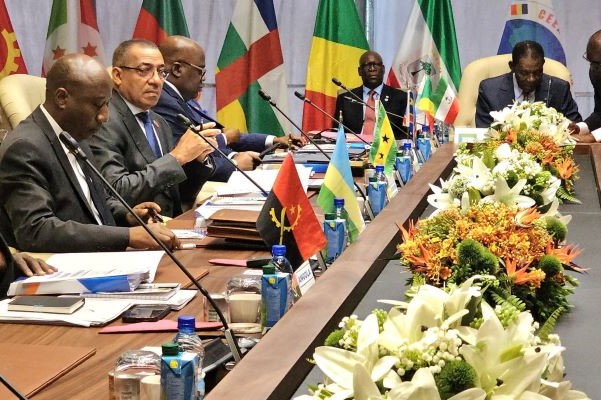In a firm and unapologetic move, the Government of Rwanda has officially reiterated its decision to withdraw from the Economic Community of Central African States (ECCAS), citing deep-rooted bias and manipulation within the regional body.
The decision was reaffirmed during a Cabinet meeting held on June 9th, 2025, at Urugwiro Village under the chairmanship of Prime Minister Dr. Edouard Ngirente.
The government stated that the conduct of certain ECCAS member states, particularly the Democratic Republic of Congo (DRC), had undermined the core principles of the organization.
Rwanda accused the DRC of using its former position as Chair of ECCAS (February 2023 to February 2024) to orchestrate unfair alliances against Rwanda, breaching internal regulations of the bloc.
“The DRC violated the organization’s rules to unjustly collude against Rwanda, a fact that was officially brought to the attention of the membership, to no effect,” the communiqué noted. According to the Cabinet resolutions, the manipulation has not only persisted but intensified under the current ECCAS leadership.
The Rwandan government underscored that the DRC had already been engaged in an armed conflict in its eastern regions before taking over ECCAS chairmanship.
Citing incidents from late 2021, Rwanda blamed the DRC for escalating hostilities by supporting armed attacks against Rwandan civilians and allowing its territories to become safe havens for over 200 illegal foreign and local armed groups.
These militias, Rwanda warned, pose a serious security threat to neighboring countries. Among the most serious accusations was the DRC’s sustained support for the FDLR, a group widely recognized for its genocidal legacy.
Despite multiple United Nations Security Council resolutions, including Resolution 2773, condemning the FDLR and urging its dismantling, the DRC has not only failed to act but continues to finance and harbor the group.
“Colluding with a UN-sanctioned group while evoking legality, responsibility and multilateralism is contradictory,” the Cabinet declared.
Recent incidents of cross-border shelling and incursions by the Congolese army and FDLR fighters into Rwandan territory were also condemned.
These actions, compounded by inflammatory rhetoric from President Félix Tshisekedi threatening regime change in Rwanda, were cited as blatant violations of Article 3 of the ECCAS Treaty, which emphasizes respect, sovereignty, and non-interference among member states.
In light of these events, Rwanda called for the DRC to shift its focus inward and resolve its deep-rooted internal governance issues rather than blaming external parties in international forums.
Despite its withdrawal from ECCAS, Rwanda emphasized that it remains firmly committed to peace and diplomacy.
“Rwanda remains committed to the pursuit of peace through dialogue and full participation in the African-led peace process as well as the complementary mediation initiatives of the United States Government and the State of Qatar,” the statement read.
In addition to addressing regional tensions, the Cabinet also approved several domestic and diplomatic measures during the June 9th meeting.
It gave the green light to the draft law for the 2025/2026 fiscal year and endorsed reforms aimed at strengthening learning outcomes in public and government-supported schools, focusing on well-rounded and career-aligned education.
Furthermore, the Cabinet approved the appointment of new ambassadors and international representatives to Rwanda. Among those appointed are Irene Vida Gala of Brazil, Gao Wenqi of the People’s Republic of China, Aurélie Royet-Gounin of France, Nezha Alaoui M’Hammdi of Morocco, Casper Stenger Jensen of Denmark, and Margaret Gaynor of Ireland.
New representatives of international organizations were also accredited, including Habtamu Fuje of the International Monetary Fund (IMF), Katia Sorin from the International Committee of the Red Cross (ICRC), and Prof. Nicaise Ndembi of the International Vaccine Institute (IVI).

